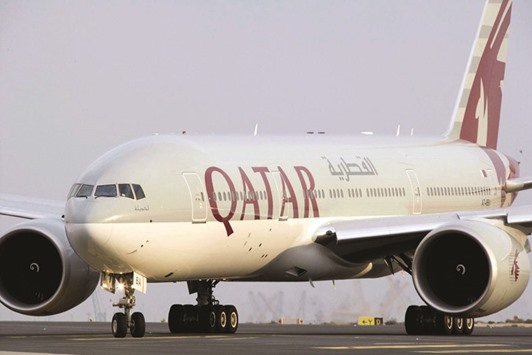Middle East carriers led airlines from all the regions across the world with a 12.2% demand increase in passenger traffic for November 2016, the International Air Transport Association (IATA) has said in a report.
But the upward trend in the region’s seasonally adjusted traffic has paused with November’s level coming in unchanged from that of July. Capacity rose 11.6% and load factor rose 0.3 percentage points to 68.7%, IATA said in its monthly report.
According to IATA, November recorded the “strongest” demand growth in nine months. Total revenue passenger kilometres (RPKs) rose 7.6% compared to November 2015. Capacity (available seat kilometres or ASKs) increased by 6.5%, and load factor rose 0.8 percentage points to 78.9%.
November international passenger demand rose 8% compared to the year earlier, with airlines in all the regions showing growth. Total capacity climbed 6.8%, and load factor edged up 0.9 percentage points to 77.1%, the report showed.
IATA’s director general and CEO Alexandre de Juniac said, “Stronger demand for air travel reflects, and is supporting, a pick-up in the global economic cycle. As the stimulus effect of lower oil prices recedes in the rear view mirror, the strength of the economic cycle will play a key role in the pace of demand growth in 2017.”
Domestic travel demand rose 7.1% in November 2016 compared with the same month in 2015, but results continued to vary widely, with China, India and Russia showing double-digit growth while demand declined in Brazil and Japan. Domestic capacity climbed 6.1%, and load factor improved 0.8 percentage points to 82.2%.
“The airline industry continues to deliver strong results. In 2017, for a third consecutive year, the industry’s return on invested capital will exceed the cost of capital. Passengers benefit from the industry’s success. Travel has never been more accessible – with great fares, many options and more destinations. Nevertheless, uncertainty lies ahead. The threat of terrorism, questions over the durability of the economic upswing, rising oil prices and increasing protectionist rhetoric are among the concerns. The industry has reshaped itself and strengthened its resilience to shocks. We should see another solid year of collective profitability for the airlines in 2017. But we must be vigilant,” said de Juniac.

A long-range Boeing 777 operated by Qatar Airways. Middle East carriers led airlines from all the regions across the world with a 12.2% demand increase in passenger traffic for November 2016.
